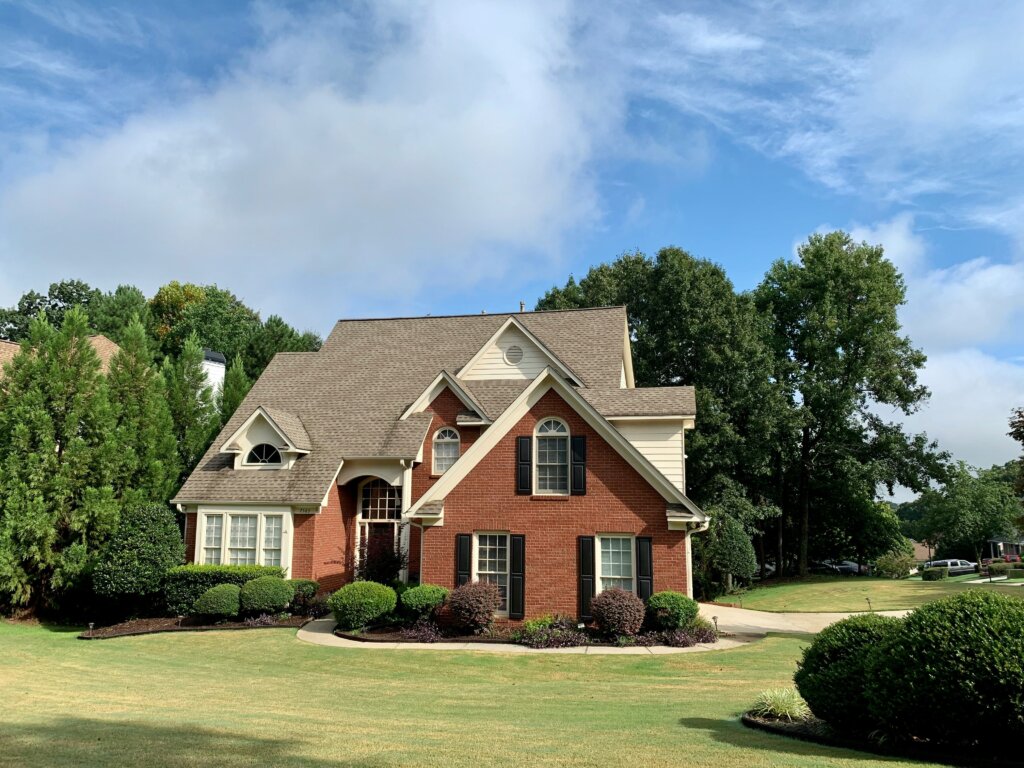Selling a house during divorce in North Carolina? Discover essential tips for navigating a court-ordered home sale, dividing equity, and deciding whether to sell before or after divorce. Learn how to protect your interests and maximize value during this complex process.
Table of contents
- Selling a house during divorce North Carolina
- Equitable distribution during divorce North Carolina
- How to sell a house during divorce North Carolina
- Advantages of selling property before divorce settlement North Carolina
- Cautions of selling house after divorce North Carolina
- Court ordered sale of house in divorce North Carolina: What are my options?
- Tips for selling your house during divorce North Carolina
- Final thoughts: Selling a house during divorce North Carolina

Selling a house during divorce North Carolina
Divorce often brings difficult decisions, and one of the most emotionally charged is what to do with the family home. Once a shared investment and symbol of stability, the house now represents both financial and personal stakes. Questions quickly arise: Who will keep the home? Will the children continue living there? How will the mortgage be paid—and by whom? Navigating these issues requires careful thought and clear agreements.
In this article we will explore considerations for selling a house during divorce in North Carolina and strategies for scenarios where one spouse objects to selling.
Equitable distribution during divorce North Carolina
First and foremost, it’s important to realize that North Carolina adheres to the principle of “equitable distribution” when dividing marital assets. This principle does not strictly entail a 50/50 split; rather, assets, including businesses and houses, are apportioned in a manner deemed equitable by the court.
However, this law only comes into play when divorcing spouses are unable to reach an agreement on how to divide their property. Under North Carolina’s equitable distribution statute, marital assets are generally split equally—meaning each spouse is entitled to 50% of the shared property. This includes any proceeds from the sale of the home during divorce.

How to sell a house during divorce North Carolina
When dividing marital assets, selling the house is often the most practical solution. After a divorce, continuing to live in the same home is usually neither comfortable nor feasible for either party. On top of that, the cost of maintaining the property while also setting up a separate household can become a significant financial strain. So, what are your options when it comes to deciding the future of the marital home during a divorce?
Buy out your spouse’s share
One approach involves one spouse purchasing the other’s share. The initial phase of this buy-out process typically involves a professional appraisal. Despite North Carolina’s adherence to equitable distribution laws, understanding the home’s value serves as a starting point for negotiations between spouses.

Several factors influence the buyout amount, including the home’s current equity and each spouse’s financial contributions toward the purchase, upkeep, and mortgage payments made during the marriage.
The spouse seeking to buy out the other must have access to separate funds that aren’t subject to division under marital property laws. Additionally, they need to show they can afford the mortgage on their own. In many cases, refinancing the home is a viable option to facilitate the buyout and remove the other spouse from the loan.
Co-ownership after divorce
If both spouses want their children to remain in the home but neither can afford to buy out the other, they may choose to retain joint ownership. In this arrangement, a legal agreement is typically created to outline each party’s responsibilities—such as how mortgage payments will be shared and who will handle maintenance and repairs.
Incentivize the reluctant spouse
When one spouse refuses to sell the home, rejects a buyout, and is unwilling to negotiate, financial incentives may help break the stalemate. The spouse who wants to sell might offer a larger share of the proceeds or trade another asset—such as a vehicle, investment account, or vacation property—to reach an agreement.
In a high-asset divorce, spouses have greater flexibility to negotiate the division of significant assets, including the family home. One spouse might choose to keep a vacation property or preserve a pension in exchange for relinquishing interest in the house. Under North Carolina law, marital assets and debts must be divided equitably—not necessarily equally—allowing for tailored settlements based on each party’s circumstances.
Sell the house and split the profits
Many divorcing couples ultimately decide that keeping the home isn’t practical or financially sensible. Although one spouse often remains in the home during the divorce process, cooperation is essential when preparing the property for sale. The proceeds from the sale are subject to equitable distribution, and in many cases, couples choose to split the net profits equally after paying off any remaining debts tied to the property.
This will additionally furnish the divorcing couple with sufficient cash to settle outstanding debts, compensate real estate agents and divorce attorneys, and facilitate the purchase of new residences.

Advantages of selling property before divorce settlement North Carolina
Selling property before divorce settlement may offer financial benefits. Through the Home Sale Tax Exclusion, married couples selling their home can avoid paying capital gains taxes on profits up to $500,000. For single homeowners, the exclusion limit is $250,000. To qualify for this exclusion, the individual must have resided in the home as their primary residence for at least two of the past five years.
Cautions of selling house after divorce North Carolina
Joint ownership of the family home with a former spouse exposes you to potential legal and financial complications. If the party responsible for mortgage payments falls behind, it can adversely affect both parties’ credit scores.
Furthermore, upon selling the property, the individual who hasn’t used the house as their primary residence for at least two of the last five years may not qualify for the home sale tax exclusion. Consequently, they may face significant capital gains tax implications.
Court ordered sale of house in divorce North Carolina: What are my options?
Sell with a real estate agent
Selling with the assistance of a real estate agent is going to be the most common method of a court ordered sale of house in divorce. Real estate agent have the knowledge, expertise and resources to get top dollar for your home which can be crucial in the course of a divorce settlement. With resources like the MLS at their disposal, real estate agents can get your house the most exposure to buyers and they will help you navigate the nuances of selling a house during divorce. They can also be a good mediator between you and your spouse to facilitate negotiations.

Sell to a cash buyer
Couples seeking a quick sale of their family home should explore options like real estate investors and cash home buyers. These buyers possess the financial means to present rapid cash offers, enabling both spouses to access their equity swiftly and move forward without delay.
Unlike traditional market sales facilitated by real estate agents, selling your house as-is to a cash buyer reduces the duration of expenses such as taxes, insurance, mortgage payments, utilities, and maintenance. Opting to sell a North Carolina house to an investor is a favored choice among divorcing couples due to its convenience.
Tips for selling your house during divorce North Carolina
Sell during peak season
In North Carolina, the prime home-selling season falls during spring and early summer. To maximize your chances of a successful sale, aim to list your house between April and June, targeting a closing date between May and August. This timeframe aligns with peak buyer activity, as it’s the most favorable period for prospective buyers to move, according to local real estate trends.
Choose a real estate agent with divorce expertise

When selling a home during divorce proceedings, it’s crucial to work with a realtor experienced in divorce-related property sales. Such an agent understands the unique complexities and legal considerations involved in these transactions. A knowledgeable divorce specialist can act as a neutral mediator, helping facilitate communication between spouses and offering impartial advice that focuses on the best interests of both parties.
Additionally, a skilled agent should be sensitive to the emotional challenges that come with divorce, providing compassionate support and guidance throughout the selling process. Choosing the right realtor can help ensure a smoother, more efficient sale, ultimately resulting in favorable outcomes for all parties involved—especially in court-ordered home sales during divorce.
Agree on home sale terms
Before listing the property, divorcing couples must agree on several key details: setting the listing price, creating a marketing plan, and arranging a convenient showing schedule. If repairs or renovations are needed, they should also discuss how costs will be shared and how any increase in home value will be divided. Establishing clear communication and decision-making guidelines is essential to prevent conflicts and ensure a smooth selling process. By addressing these matters together, couples can manage the sale more efficiently and with less stress.
Know what to expect in order to close
Closing the sale of a house during divorce often requires negotiation and compromise, especially when reviewing offers from potential buyers. Couples must clearly define their priorities—whether it’s maximizing profit, speeding up the sale, or reducing stress and conflict. Working closely with both legal advisors and real estate professionals is essential. Together, they can carefully evaluate offers, negotiate terms, and manage any legal challenges, helping to ensure a smooth and mutually agreeable conclusion to the sale.
Know what to expect after closing
Once the sale is complete, the proceeds must be divided between the spouses according to the divorce settlement or court orders. Couples should be aware of potential tax implications and consider consulting financial advisors to ensure a fair distribution. Before distributing the funds, any outstanding debts tied to the property—such as mortgages or liens—must be paid off to guarantee a smooth and final resolution.
Final thoughts: Selling a house during divorce North Carolina
Selling a house during divorce can be emotionally exhausting. It’s essential for couples to prioritize their self-care and mental well-being throughout the process. Divorce brings many challenges and emotional stresses, so seeking support from trusted friends, family, or mental health professionals can make a meaningful difference during this difficult time.
Approaching the sale of a house during divorce with patience, empathy, and thoughtful planning can reduce stress and conflict, paving the way for a fair and equitable outcome. With the support of experienced legal and real estate professionals, couples can navigate this challenging process successfully and move forward with confidence.

Do not allow the complexities of selling a house during a divorce to overwhelm you. Our team of experts is here to offer the support and guidance necessary to navigate this challenging process with confidence.
Contact us today to discover more about how we can assist you in efficiently and effectively selling your house during a divorce. Your future awaits – allow us to help facilitate a smooth transition.
These findings apply to all cities and towns in North Carolina, including Raleigh, Durham, Fayetteville, Johnston County, Sanford, Burlington, and surrounding areas.
Related Articles
Can you sell a house in foreclosure in North Carolina?
How to sell rental property in North Carolina (and avoid paying taxes)?
Selling a house as-is in North Carolina (How to sell a house that needs repairs)
How much are seller closing costs in North Carolina?
Can a house be sold with a lien on it in North Carolina?
A guide to selling a house with tenants in North Carolina
A guide to selling inherited property in North Carolina
Selling a house during divorce in North Carolina
Selling house for job relocation North Carolina
Selling a fire damaged house North Carolina
Selling a house with code violations North Carolina
At Freedom Choice Investments we buy and list properties in North Carolina in any condition and in any circumstance – even those that are at the center of a divorce settlement. We pay cash for properties making the transaction quick and easy or we can list your house for top dollar.
If you’re interested in selling a house during divorce in North Carolina, fill out the form below or contact us at (919) 285-1284 for a no-obligation cash offer.
Sell My House Fast For Cash Today!
Get started now. Fill out the form to receive your cash offer in minutes. There’s no obligation. We buy houses in any condition and always close on YOUR timeline.

Author: Jason Hill
I am a seasoned real estate agent and investor with nearly a decade of experience helping families sell their marital house during divorce in North Carolina. As the founder of Freedom Choice Investments my mission is to deliver simple and hassle free selling solutions to North Carolina homeowners. With the ability to either list your house or buy it as-is we have a unique offering that caters to those looking for ways to sell a house during divorce in North Carolina.

